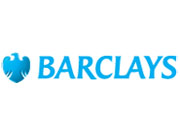News
Barclays scandal: 20 other banks embroiled in Libor probe

Jerry del Missier appeared to contradict the evidence of his boss Bob Diamond on Monday when the ex-chief operating officer of Barclays told MPs that he “passed instructions along” to take actions that would lower the bank’s submission to the Libor rate-setting panel. The Treasury select committee resumed its investigations into the Libor rate-fixing scandal, questioning Mr Del Missier and senior executives of the Financial Services Authority.
Settlement documents signed by Barclays and the FSA say that a Barclays employee specifically mentioned that banks were understating the Libor rates during a 2008 conversation with the FSA about liquidity. But the City regulator did not begin investigating the issue until US regulators got in touch in late 2009 with evidence involving UK banks.
A trio of regulators from the FSA, meanwhile, will later face a grilling on why they did not act sooner to stop Barclays and other banks from attempting to manipulate the rates. Nearly 20 banks and interdealer brokers are embroiled in the Libor probe, which involves a dozen regulators on three continents.
UNI and its affiliates urge major culture change in the financial sector. Appropriate regulatory measures need to be put in place to protect the “whistle-blowers” which had been revealing unethical behaviour since 2007. Bank employees must be seen as vectors of change.
The “big-bang” started last week, when Barclays Bank had to pay a record £290m in penalties as it admitted it had repeatedly understated its short-term borrowing costs also called Libor (London interbank offered rate). Politicians expressed their outrage at how Barclays traders had rigged Libor while promising each other bottles of champagne in return. The government announced on Monday a parliamentary inquiry into banking standards. Mr. Agius, the Chairman of the Bank announced he would resign in the coming month as this happened on his watch. The next day, Bob Diamond, Chief Executive of Barclays Bank was forced to quit.
UNI Global Union General Secretary Philip Jennings said, “The resignations of Agius and Diamond are just the first steps to change a ‘cesspit’ culture: the voices of front line bank workers deserve to be heard worldwide. Bank workers also need to have a seat on the board.”
In Barclays case, some employees had already revealed unethical practices dating back to 2007 and 2008. The current crisis could have been prevented if these employees had been listened to and if they had direct access to a supervisory authority without putting their own job at risk. “Employees are the first ones to recognize systemic failure or risky business as it is part of their day-to-day operations. Finance sector trade unions have demanded effective whistle blowing structures since the beginning of the financial crisis in 2007. Once again, their demand has proven right”, added Oliver Roethig, the Head of UNI Europa Finance.
David Fleming, UNITE national officer based in the UK concludes by saying that “whoever succeeds Bob Diamond must put the thousands of innocent workers who deal with customers every day at the heart of rebuilding trust in Barclays. Let’s not forget that these workers must now pick up the pieces of this latest scandal”. 20 other banks are now under scrutiny for having used similar practices of interbank rate manipulation. For UNI affiliates, a radical “break through” approach is urgently needed by implementing an effective legislative framework to protect whistle blowers for reporting breaches to regulators.
UNI Global Union, UNI Finance Europa and their affiliates are working with Barclays Bank and other banks to set up global agreements to improve the situation.
In his letter to the Financial Times, Jennings said that a global truth and reconciliation commission had to be set up to restore confidence in the discredited banking world with someone of the calibre of Nobel laureate Joseph Stiglitz at the helm.
Read the full letter from Philip Jennings published in the Financial Times by clicking here.

